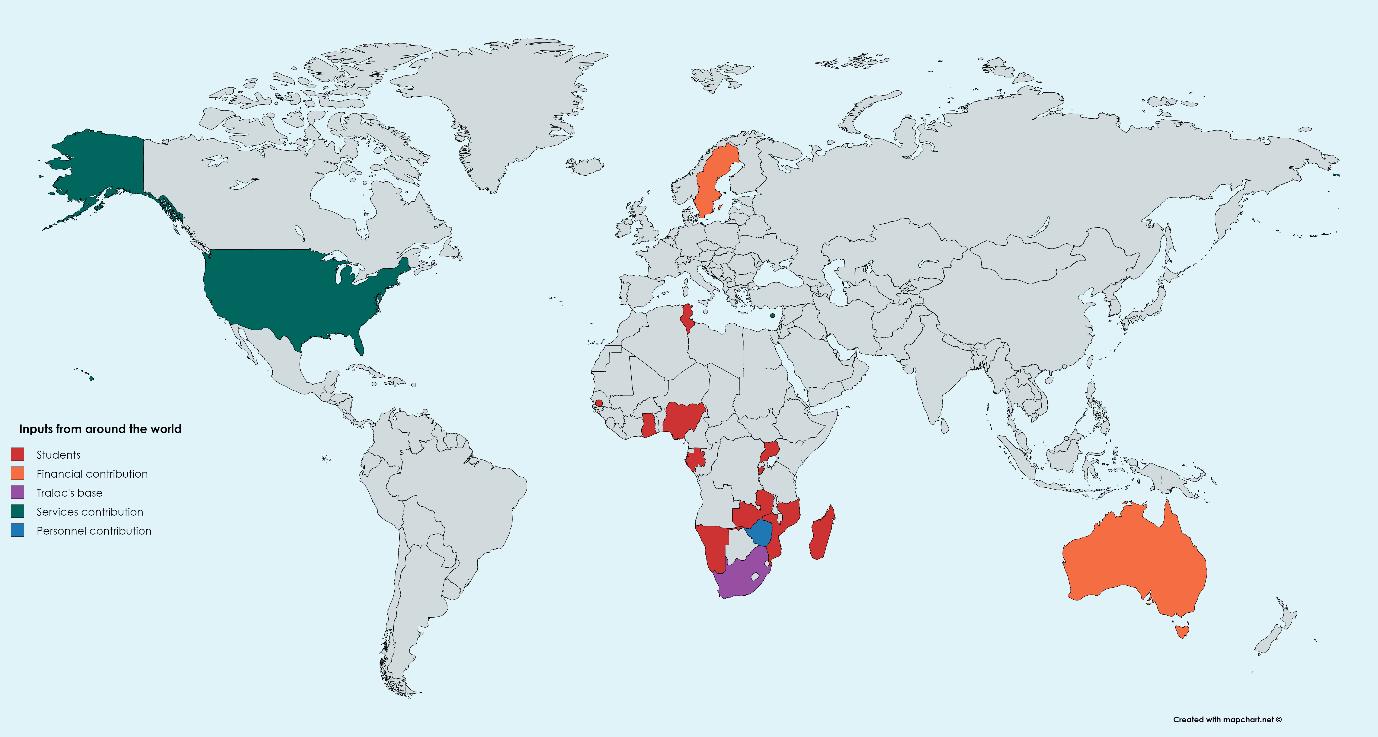Discussions
A tiny slice of services trade in a globalised world
Ashly Hope, tralac Research Advisor, introduces tralac’s latest capacity-building initiative
Today’s discussion is a slight diversion from our usual policy issues to reflect on our own experience of the global nature of services enabled by the internet… tralac is currently in the process of launching our first online course.
Our staff are from South Africa, Zimbabwe, and Australia. A grant for the course comes via the Australian High Commission, and further support is provided from the Swedish International Development Agency.
The online learning platform, commissioned by one of our Zimbabwean staff was developed by an Australian start-up.
As part of the course marketing, we also developed a short video. The video, commissioned by one of our Australian staff, was created by a United States company, registered in Cyprus.
Our students will be from all over Africa.
Just this small endeavour – developing, marketing and delivering an online course has involved people and money from several countries, the cross-border provision of education services, the cross-border provision of design and illustration services, the cross-border provision of software and no doubt even more.
This micro example is just one illustration of the interactions that have been made possible by technology and remind us that services are very much tradable across borders – and that trade is not limited to large corporations, but benefits small NPCs like us, as well as tech start-ups like the ones we are trading with. Of course, it also benefits the consumers of our new education service – which will make our capacity building accessible to students all over the world.
These kinds of benefits – better services and more competition for small and large businesses seeking services, a global marketplace for service providers and more options and choice for consumers – are both the inevitable result of global commerce and internet connectivity and a worthwhile goal for governments to pursue.
Continuing to work towards promoting this kind of trade is a practical way to improve opportunities on both sides of these transactions. One important part of this is developing rules of the game, to ensure, for example, that:
-
when I pay for a service from across a border, the service will be delivered or I will have some kind of recourse;
-
if a service requires special expertise, skill or qualification to perform, only those with that expertise, skill or qualification will be offering me that service, while at the same time, enabling those skills, expertise or qualifications to be recognised wherever they are relevant;
-
any ‘friction’ in a transaction caused by regulation is necessary; and
-
the playing field is level for both domestic suppliers and foreign suppliers of the service.
These kinds of rules are important components of modern free trade agreements and bilateral and multi-lateral economic partnerships. Enabling, and articulating the expectations for the supply of services across borders, especially in an e-commerce environment, is important in providing both certainty for business and trust for consumers. If governments reduce specific barriers for service providers in particular sectors through reciprocal negotiations and unilateral liberalisation, certainty and trust mean that this commerce is more likely to take place. This is what we want to encourage through the creation of a Continental Free Trade Area (CFTA) and this is a goal worth remembering as negotiators continue to discuss the mechanisms and modalities of the CFTA.


